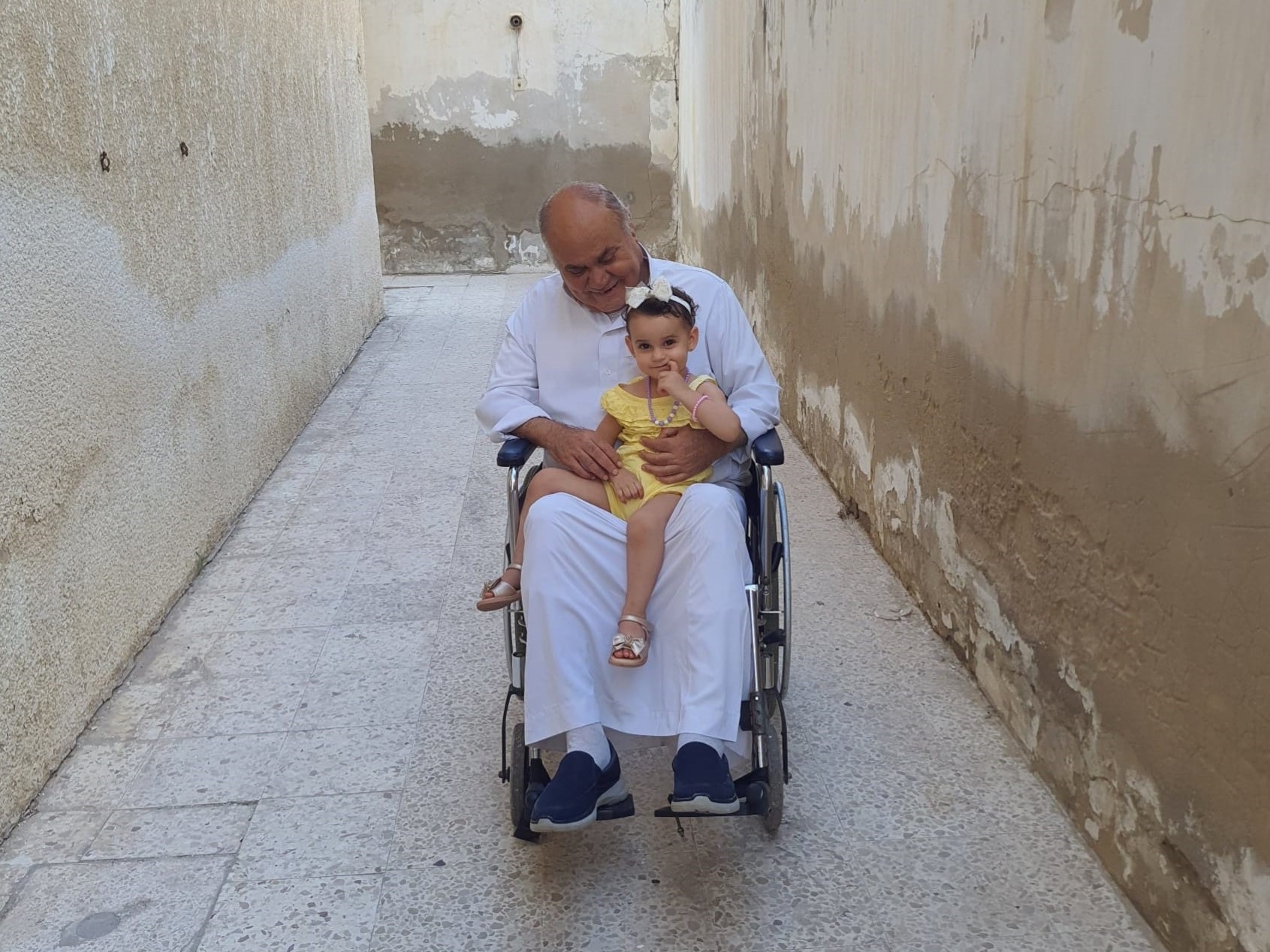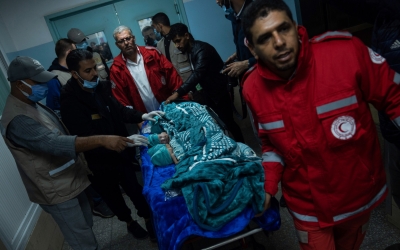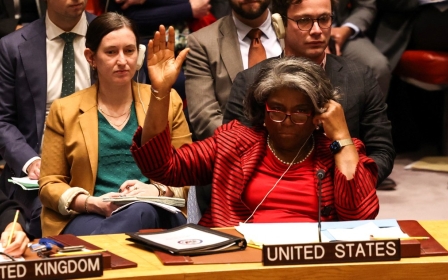War on Gaza: Conflict strands chronic disease patients without access to treatment

Over 70 days into the Israeli assault on the Gaza Strip, hospitals across the enclave - including al-Awda in the north and al-Shifa in Gaza City - have ceased operations.
Displaced Palestinians grappling with chronic diseases have experienced profound and tragic loss as a result of the dire situation.
Khalil Abu Dalfa, 68, passed away on 19 December after succumbing to complete kidney failure exacerbated by the inability to undergo regular kidney dialysis.
"In his mid-20s, he was diagnosed with chronic hypertension and type 2 diabetes," Abu Dalfa's daughter-in-law, Noor, said.
"Three years ago, he developed a skin ulcer in his foot that progressed to gangrene, leading to the amputation of his toe. Subsequently, his health deteriorated further due to excessive reliance on painkillers and antibiotics. Later, he experienced complications affecting his heart and kidneys. Two years ago, he was diagnosed with kidney failure."
New MEE newsletter: Jerusalem Dispatch
Sign up to get the latest insights and analysis on Israel-Palestine, alongside Turkey Unpacked and other MEE newsletters
Abu Dalfa used to undergo kidney dialysis at Shifa Hospital three times a week, each session lasting four hours.
"The process left him exhausted and fatigued, and even the medications he took were washed out during the dialysis, necessitating another round of medication afterwards. He also needed to strictly adhere to a dietary regimen to navigate his day," added Noor.
On 9 October, two days after the Hamas attack that prompted Israel's ongoing bombardment, Abu Dalfa and six of his family members were forced to abandon their house in the al-Maqqousi area in eastern Gaza and move to the al-Nafaq area to escape the destruction.
He continued his kidney dialysis at Shifa, but after being forced to flee again to Khan Younis on 19 October he started to undergo kidney dialysis at Nasser Hospital.
Then tanks surrounded the hospital and began to besiege it.
Repeated displacement
On 6 December, the family was displaced again to Rafah, forcing Khalil to seek treatment at Abu Yousef al-Najjar Hospital.
"In Rafah, we stayed in a house with five other families, totalling 40 individuals. We suffered from food scarcity, so he could not commit to his dietary regimen, which included consuming a limited amount of sugar, non-starchy vegetables, whole grains and lean proteins," Noor said.
"Due to prolonged queues of patients needing kidney dialysis, doctors had to reduce his dialysis to four hours a week, instead of 12 hours as before. This led to ureas and liquids accumulating in his body.
"His health condition was severe. My husband asked the hospital to increase the hours of dialysis but no immediate action was taken. Worse, the dialysis line he used for kidney dialysis was damaged."
On 14 December, amid the destruction and siege of Gaza, doctors had to conduct a surgical procedure to fix the line so Abu Dalfa could continue dialysis.
But he was unable to undergo treatment for more than a week. On 17 December, Abu Dalfa went into a coma. He died two days later.
Mohammad Absy, a consultant nephrologist, said that infrequent dialysis exposes patients to death mostly by cardiac arrest due to increased potassium levels and acid concentration in the blood.
"The acid load is increased with starvation. Dialysis patients if not dialysed frequently will suffer from fluid overload leading to suffocation and death," he told MEE.
"Starvation causes patients' muscles to break down and this will produce more urea as a waste product. When these patients finally get dialysis they suffer nausea and vomiting during the dialysis session."
No 'dignified death'
The death toll in Gaza has reached over 20,000 with more than 53,000 more wounded.
More than 1.9 million Palestinians have been displaced, while the enclave's vital infrastructure has been left in ruins.
On 20 October, Mohammed Abu Aisha, an 82-year-old terminal patient receiving end-of-life care, was displaced from his house in Gaza City.
"Due to the intensified bombardment, he and my step-grandma sought refuge at a relative's house in [central Gaza]," his granddaughter Enas, a 30-year-old physician in the UK, said.
"They found themselves living with dozens of people in a single house, sharing one toilet, with no access to drinkable water and very limited food resources and options.
"His condition has deteriorated over the last few months, and he was meant to be admitted for hospice care. Similar cases in Gaza used to be admitted to al-Wafaa Community Hospital, which provided terminal patients with end-of-life medications, support, and care. Unfortunately, he has not been offered a dignified death."
Before 7 October, Abu Aisha had to follow a dietary regimen that included protein. However, due to the scarcity of food once the bombardment of Gaza began, he mainly consumed rice, with limited availability, resulting in a calorie deficit.
"His weight loss reached a critical point, nearing cachexia. Additionally, he had type 2 diabetes and hypertension, but he had no access to essential medications, including insulin, and couldn't reach any medical facilities for proper healthcare," Enas added.
Compounding his health issues, Abu Aisha faced complications with bed pressure sores in his lower back, bottom and legs, with no access to antibiotics or proper dressings.
The hospitals in his area were fully occupied with injuries due to the ongoing war, leaving no room to hospitalise him, prolonging his suffering from the persistent pressure bedsores.
"On 27 October, he passed away, and the likely cause of death was sepsis due to the severely untreated infected bed pressure sores," said Enas.
"Due to the ongoing and heavy bombardment, my mum was not lucky enough to bid farewell to her beloved father."
Middle East Eye delivers independent and unrivalled coverage and analysis of the Middle East, North Africa and beyond. To learn more about republishing this content and the associated fees, please fill out this form. More about MEE can be found here.






